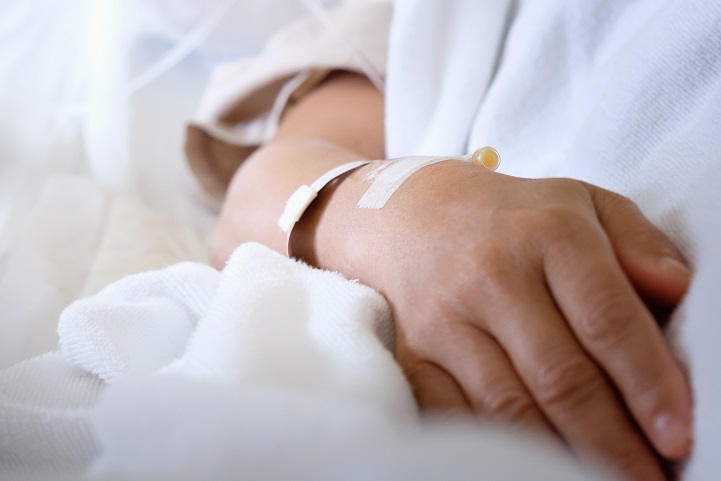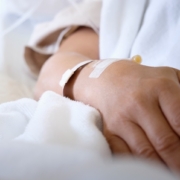The tragedy of Archie Battersbee

Mrs Justice Arbuthnot’s judgement earlier this month on the tragic case of Archie Battersbee is sobering reading. Her ruling came across to me as kind and thoughtful, and the fact that she took time to visit Archie in hospital for herself speaks highly of her commitment to do the right thing for this twelve-year-old boy who was found unconscious at home by his mother on 22 April this year.
Archie had a cardiac arrest on arrival at hospital, during which ‘it seems Archie’s brain was starved of oxygen and blood supply for several minutes.‘ (Barts Health NHS Trust v Dance & Battersbee [2022] EWHC 1435 (Fam) at 4*). He has never regained consciousness and, at the time of writing, remains on mechanical ventilation in hospital. The NHS Trust caring for Archie had approached the courts seeking a declaration that it was lawful for Archie to undergo brain stem testing to establish if he was brain stem dead or not. A second declaration was also sought that it would be lawful to withdraw mechanical ventilation, which would result in Archie’s heart stopping. Both of the sought declarations were granted in a judgement that shows profound sensitivity to the family whilst making it crystal clear that in the judge’s view, any further treatment for Archie is now futile as he is brain dead.
As in previous cases such as those of Charlie Gard and Alfie Evans, the fate of children for whom further medical intervention is considered to be of no benefit raises strong emotions. When trust in the hospital teams caring for the child is lost, for whatever reason, it is understandable that court proceedings are eventually undertaken by one or other party. Trust in such circumstances is essential, as brain death is a difficult concept even for medically qualified professionals to fully comprehend. When people are convinced that death occurs only when the heart stops beating, it takes much time and patience on the part of hospital staff to allow parents to accept that, although their child’s heart may be beating, they can still be clinically dead.
It is essential, of course, that brain death is accurately diagnosed. In this case, by the time the Court approved brain stem testing on 13 May, and it was attempted three days later, Archie was unresponsive to the peripheral nerve stimulation tests, which are an essential precursor to brain stem testing. The brain stem test could then not be carried out because the results could not be relied upon in such a situation. (24)
In lieu of brain stem testing, Mrs Justice Arbuthnot granted a request for a further MRI scan of Archie’s brain and spine. Though it was acknowledged that this did present some risk to Archie and was understandably opposed by his parents, it was carried out on the basis of three consultants all agreeing that it was ‘likely or very likely that Archie had died‘. (28)
There had already been several indications up to this point in the judgement of the consequences and possible causes of the parents’ loss of trust in the hospital. Within three days of his admission, the family understandably became very upset that a consultant had approached them about Archie becoming a deceased organ donor. (100) At that time, they were still weighing up the risks of brain stem testing for Archie. (99) At one point, Archie’s mother became convinced the hospital was deliberately starving her son. (34) Little wonder, then, that when the family had apparently been shown cropped photocopies of the MRI scans from which Archie’s name and details had been removed (38), they were concerned the scans were those of someone else. (33) The judge commented on how these ‘issues raised show clearly the lack of trust the family has in the very experienced clinicians caring for Archie‘. Nevertheless, she had ‘no reason to doubt’ that the three main clinicians treating Archie wanted ‘what is best for him‘. (47)
The repeat scan of 31 May showed, amongst other findings, ‘severe damage to the deep centre of the brain including to the thalamus‘, coning and necrosis of the brain stem, and ‘the absence of blood circulation through the larger arteries that supplied blood to the front and back of the brain‘. (88, 89) The reporting clinician’s view was that ‘Archie had reached the point of no return. The sort of images he was seeing were ones he usually saw at perimortem or postmortem‘. (94) The evidence of three clinicians ‘made bleak hearing for the family and the Court‘. (95)
At the time of the judgement, Archie had already been unconscious for eight weeks and had lost 10 kg in weight due to brain damage. Given the result of the 31 May scan, the judge declared that Archie had died on that day shortly after the scans were taken, as she considered that ‘irreversible cessation of brain stem function has been conclusively established‘. In light of this, she permitted the hospital to cease mechanical ventilation, extubate Archie and cease administration of the medication he was receiving. (181)
Extensive consideration was given not only to Archie’s best interests but also to those of his parents and staff caring for him. The judegment concluded, ‘If Archie remains on mechanical ventilation, the likely outcome for him is sudden death and the prospects of recovery are nil. He has no pleasure in life and his brain damage is irrecoverable. His position is not going to improve. The downside of such a hurried death is the inability of his loving and beloved family to say goodbye.‘ (194)
It was inevitable, given the combination of the breakdown of the family’s trust and the inability of the standard tests to confirm brain stem death to be performed, that the Courts would be involved. It seems clear currently, however, that either Archie’s heart will stop beating at an unpredictable time in the future, or his family can prepare to be there with him at a time when this event is planned.
Archie’s family surely need our prayers that they would come to accept that Archie will never recover because he is brain dead. Being there with him when his heart stops, though unbearably painful, is the least worst option in a situation no one would want to be in. May they be conscious, like the Psalmist, that though they walk with Archie ‘through the valley of the shadow of death‘, they need ‘fear no evil‘ for God is with them and will comfort them. (Psalm 23:4, KJV)
Trevor Stammers is an Associate Staff member at CMF.
* Numbers in parentheses in the text refer to the relevant paragraphs in the judgement.
Note: Mrs Justice Arbuthnot has, since this judgement, granted Archie’s parents’ permission to take the case to the Court of Appeal.












Leave a Reply
Want to join the discussion?Feel free to contribute!